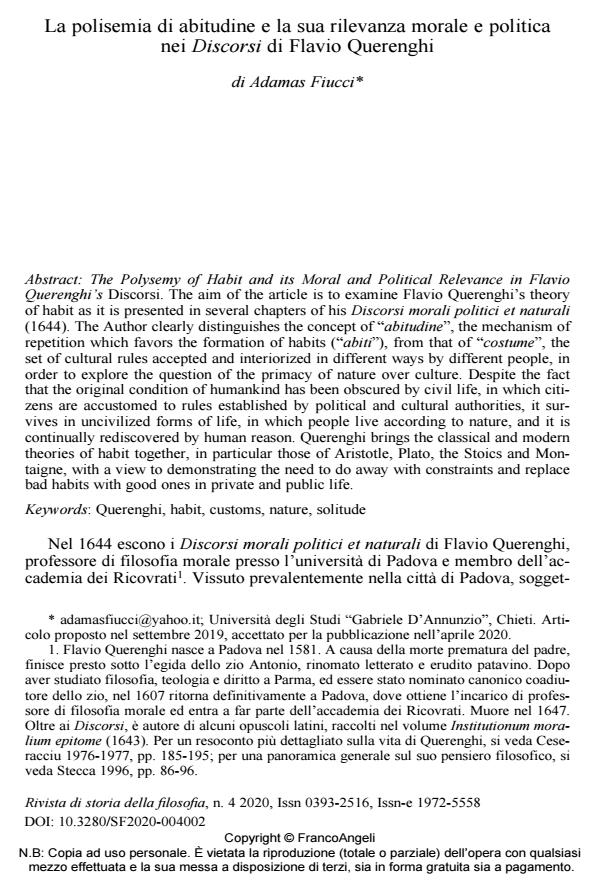The Polysemy of Habit and its Moral and Political Relevance in Flavio Querenghi’s Discorsi.
Journal title RIVISTA DI STORIA DELLA FILOSOFIA
Author/s Adamas Fiucci
Publishing Year 2020 Issue 2020/4
Language Italian Pages 16 P. 653-668 File size 249 KB
DOI 10.3280/SF2020-004002
DOI is like a bar code for intellectual property: to have more infomation
click here
Below, you can see the article first page
If you want to buy this article in PDF format, you can do it, following the instructions to buy download credits

FrancoAngeli is member of Publishers International Linking Association, Inc (PILA), a not-for-profit association which run the CrossRef service enabling links to and from online scholarly content.
The aim of the article is to examine Flavio Querenghi’s theory of habit as it is presented in several chapters of his Discorsi morali politici et naturali (1644). The Author clearly distinguishes the concept of "abitudine", the mechanism of repetition which favors the formation of habits ("abiti"), from that of "costume", the set of cultural rules accepted and interiorized in different ways by different people, in order to explore the question of the primacy of nature over culture. Despite the fact that the original condition of humankind has been obscured by civil life, in which citizens are accustomed to rules established by political and cultural authorities, it survives in uncivilized forms of life, in which people live according to nature, and it is continually rediscovered by human reason. Querenghi brings the classical and modern theories of habit together, in particular those of Aristotle, Plato, the Stoics and Montaigne, with a view to demonstrating the need to do away with constraints and replace bad habits with good ones in private and public life.
Keywords: Querenghi, habit, customs, nature, solitude
Adamas Fiucci, La polisemia di abitudine e la sua rilevanza morale e politica nei Discorsi di Flavio Querenghi in "RIVISTA DI STORIA DELLA FILOSOFIA" 4/2020, pp 653-668, DOI: 10.3280/SF2020-004002